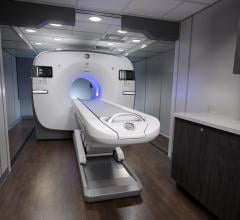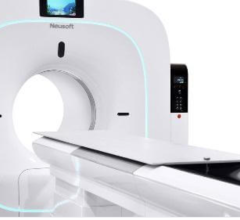Feb. 7, 2007 - Pulmonary and critical care specialists at UC Davis Health System are investigating a new, minimally invasive treatment for those suffering with advanced widespread emphysema. The study is part of an international, multi-center clinical trial involving 12 institutions.
Called the EASE(TM) (Exhale® Airway Stents for Emphysema) trial, the study focuses on a procedure called airway bypass, which creates ways for air trapped in the lungs to escape, thereby relieving symptoms of emphysema, such as shortness of breath.
Emphysema is a chronic, progressive and irreversible lung disease characterized by the destruction of lung tissue. The loss of the lungs natural elasticity and the collapse of airways in the lung combine to make exhalation ineffective, leaving emphysema sufferers with hyperinflation because they cannot expel air from their lungs. With hyperinflation, breathing becomes inefficient and the patient is always short of breath. Even the most nominal physical activities become difficult for emphysema patients, and many become dependent on oxygen therapy.
"Emphysema patients have limited treatment options, are often in poor physical condition and have to struggle with each breath. New approaches are needed," said Andrew Chan, an associate professor of pulmonary and critical care medicine, and co-principal investigator of the study at UC Davis Health System. "By creating new pathways for airflow, we hope to reduce hyperinflation and improve lung function. If patients can breathe easier, it is likely to improve their quality of life."
The new procedure uses a flexible bronchoscope to place a drug-eluting stent in the airway. The stent creates new pathways for airflow, allowing trapped air from the lung to escape.
"The airway bypass procedure could be an excellent option for those who would possibly spend years on a lung transplant list or not be suitable candidates for lung transplant surgery, which is one of the only other treatment options available for patients with this type of emphysema," said Roblee Allen, professor of pulmonary and critical care medicine and co-principal investigator.
Physicians commonly use bronchoscopes to examine the airways within the lungs. During the airway bypass procedure, physicians will first use a Doppler probe inserted through the bronchoscope to identify a site in the airway that is away from blood vessels. A special needle is then used to make a small opening for the stent to keep the passageway open. The procedure involves placing up to six drug-eluting stents. The total time of the procedure is approximately one to two hours.
Emphysema affects an estimated 60 million people worldwide, with more than 3 million sufferers in the United States. There is no cure for emphysema.
UC Davis Health System is currently recruiting patients for the EASE trial, which will evaluate patients for approximately 15 months to five years and include eight-to-16 physician appointments (depending on if the patient is randomized to the control or the treatment group). All study-related medical procedures will be performed at no charge to the patient and patients will be closely monitored throughout the trial.
Participants will also receive at least six to 10 weeks of pulmonary rehabilitation therapy. People over the age of 35 who have been diagnosed with advanced, widespread emphysema and no longer smoke (or would be willing to stop smoking two months prior to the study) may qualify to participate in this study. For more information, call 866-488-EASE or visithttp://www.easetrialus.com/.
The stent used in the study is manufactured by Broncus Technologies, Inc.
UC Davis Health System is an integrated, academic health system encompassing UC Davis School of Medicine, the 577-bed acute-care hospital and clinical services of UC Davis Medical Center, and the 800-member physician group known as UC Davis Medical Group.


 November 18, 2025
November 18, 2025 









